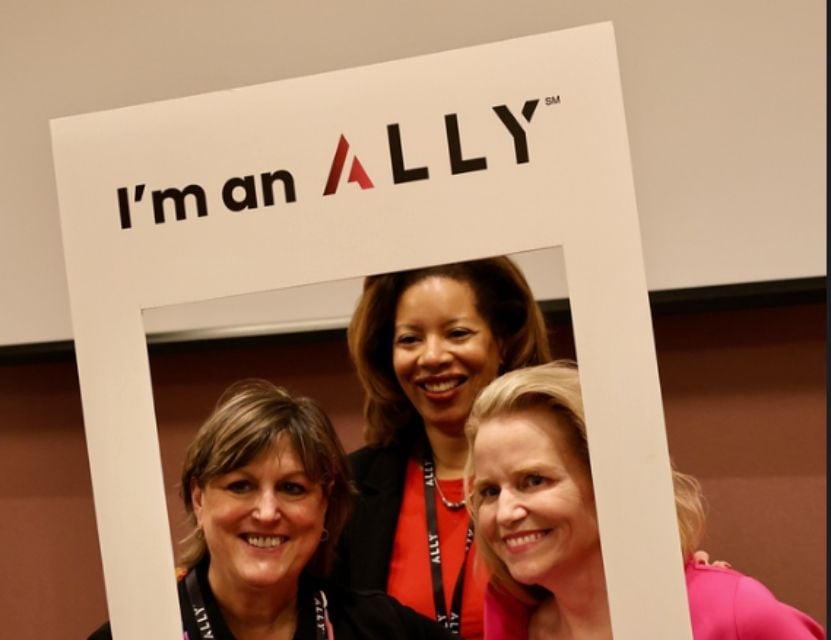This post was originally published by Baker Hughes
Regina Jones, Baker Hughes’ Chief Legal Officer, says it might be easier to describe what she hasn’t had to consider since taking up her role in April this year, rather than listing the broad sweep of what has required her attention. The new world order imposed by a global pandemic has raised many unique and complex challenges.
Among the attention grabbers: the regulatory implications of remotely delivering services to clients in high risk environments; reinforcing Baker Hughes’ culture of “integrity” during the on-boarding of new staff who are starting work with the company from their living rooms; and building the company’s risk resilience in an uncertain global landscape.
Anticipating enterprise risks — environmental disruptors, ever-changing regulations and fast-moving markets that could derail strategic objectives — have become the most critical factors in Jones’s day-to-day interactions with her global legal team of legal professionals, as she hones for agility in Baker Hughes’ responsiveness to both threats and emerging opportunities.
She says organizations can no longer prepare a strategic plan and conduct a separate risk evaluation exercise. “The two really must be hand in hand because organizations must have the resilience to deal with whatever events come their way.”
De-risking with data and digital communications
Leveraging technology to create the most relevant “dashboard” of risk indicators, and steering with a constant eye on the storm-strafed horizon is key. “The competitive differentiator is your ability to deal with data while you’re executing your strategy and while your risks are changing and developing around you,” she says. Although the potential for a pandemic may have been foreseen by some, Jones says no-one could have anticipated the extent of the impacts of COVID-19. “Your overall risk resilience is based on your ability to evaluate high volumes of data, process it and make decisions, while contemplating potential impacts to your stakeholders -- from investors, to customers, to employees and their families.”
“Your overall risk resilience is based on your ability to evaluate high volumes of data, process it and make decisions.''
Regina Jones, Chief Legal Officer, Baker Hughes
Talking on Microsoft Teams from Houston at 4.30 in the afternoon, Jones has headset on and video off, because it’s her first opportunity today to eat lunch. Since starting her role nearly six months ago, Jones says she has only met 23 Baker Hughes coworkers in person. Her typical day starts at 5 a.m. when she goes for a run with her husband, before grabbing a coffee, and turning on her computer at 7 a.m. for “back to back to back to back to back meetings” that can run throughout the day. She says one of the silver linings of COVID-induced isolation is people’s willingness to connect in ways they might never have considered before. “You have the opportunity to engage with colleagues in their homes, meet their pets and wave to their children in their game rooms, family rooms and unique home offices.”
A shock-resistant approach to innovation
Although “enterprise global” risks such as COVID are once-in-a-century type events, other crises such as climate change, or localized disasters such as the impacts of hurricanes in the Texas Gulf Coast mean that organizations have to stay focused on all types of risk. And some of these risks are becoming more acute, and more frequent.
Jones says Baker Hughes is astute to coordinating its strategies in line with evolving risk factors: by positioning itself as an energy technology company, it is looking to the future, how to move energy forward and “leverage our capabilities, which go well beyond oil and gas, to really differentiate and deliver on the promise of energy”.
“Leverage our capabilities to really differentiate and deliver on the promise of energy.”
Regina Jones, Chief Legal Officer, Baker Hughes
Of course, enterprise risk may emerge beyond natural disasters. They may be associated with new ventures, partnerships and entering new market spheres. If the business strategy involves the entry into a new geographical market or the launch of a new product, it is important that we proactively take actions to mitigate the potential impacts, rather than reactively responding after the fact.
Over more than two decades as a lawyer in the energy industry, she says, “people don’t typically come to me with stories about how things worked out wonderfully well,” she smiles into the phone. In today’s environment, we have to be much more attuned to the competitive benefits of “understanding what may be on the horizon, being ahead of issues and making the right decision the first time”.
“to be prepared, and to test your preparedness”
Regina Jones, Chief Legal Officer, Baker Hughes
Risk almost always accompanies opportunities, but companies need resilience and clarity to be able to operate in the presence of one while capitalizing on the other. COVID-19 says Jones, has highlighted the imperative “to be prepared, and to test your preparedness”. She says you have to have teams ready to respond, to have identified the experts who may be required for consultation, to have engaged those within the organization capable of examining risks from different perspectives and to have the technology within your environment that equips you to deal with various scenarios.
“Managing enterprise risk is about how we position the company, the stakeholders across the different domains — internal, external, client, partner — such that our business strategies are successful,” Jones says before she leaves this meeting to join another. “That’s the real test of whether I’m doing my job.”





